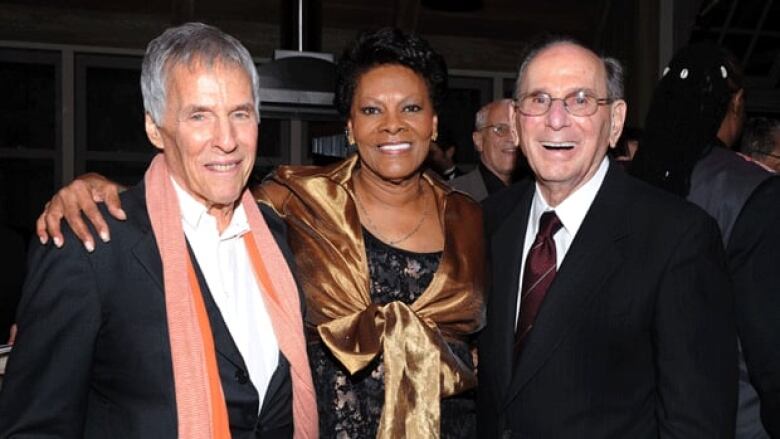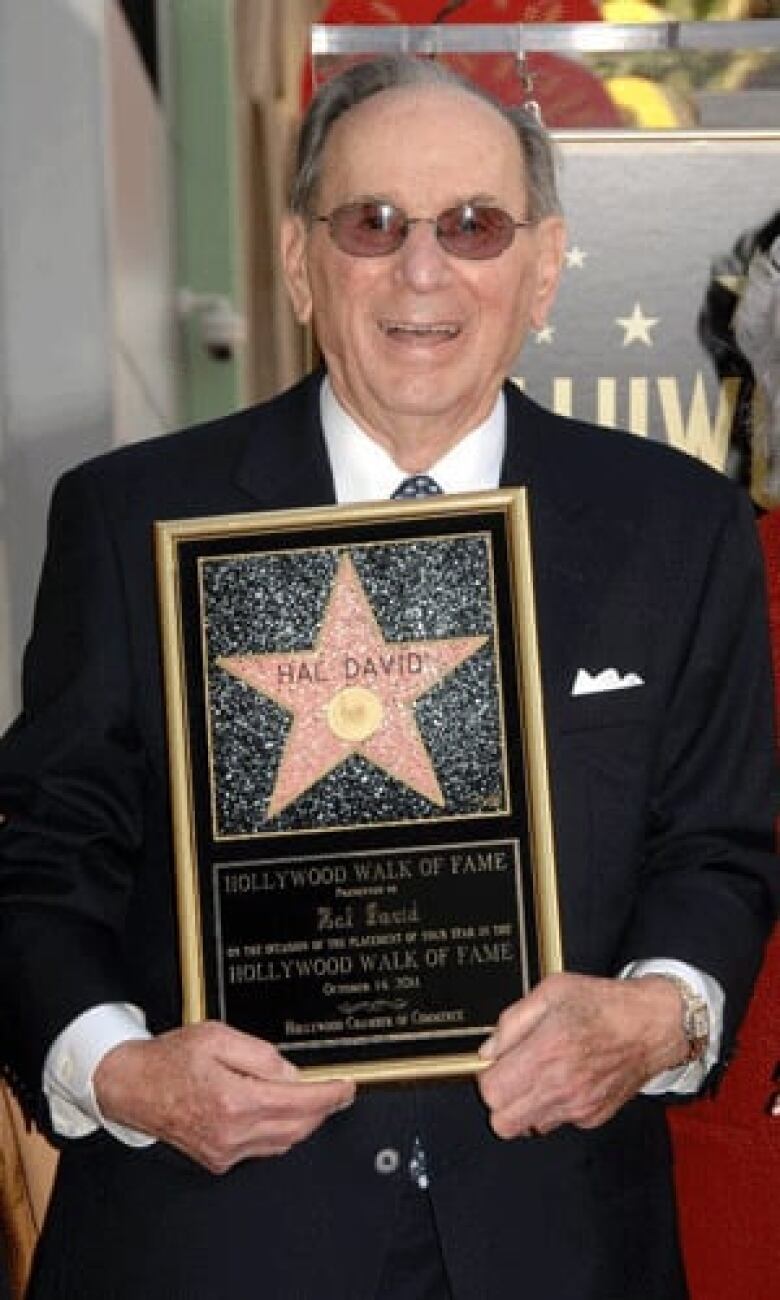What's New Pussycat lyricist Hal David dies
Partnered with Burt Bacharach on many hits

Hal David, who along with partner Burt Bacharach penned dozens of timeless songs for movies, television and a variety of recording artists in the 1960s and beyond, has died. He was 91.
David died of complications from a stroke Saturday morning in Los Angeles, according to Jim Steinblatt, spokesman for the American Society of Composers, Authors and Publishers. David was a longtime member and former president of ASCAP.
Bacharach and David wrote many top 40 hits including Raindrops Keep Fallin' On My Head which captured an Oscar as it was featured in the movie Butch Cassidy and the Sundance Kid Close to Youand That's What Friends Are For. They would be nominated several times for best song, but only won once.
"As a lyric writer, Hal was simple, concise and poetic conveying volumes of meaning in fewest possible words and always in service to the music," ASCAP's current president, the songwriter Paul Williams, said in a statement. "It is no wonder that so many of his lyrics have become part of our everyday vocabulary and his songs... the backdrop of our lives."
Many lyrics and tunes from Bacharach and David continue to resonate in pop culture, including Do You Know the Way to San Jose and I Say A Little Prayer to What The World Needs Now Is Love. Their music was recorded by legendary singers including The Beatles, Barbra Streisand, Frank Sinatra, Neil Diamond and their longtime partner Dionne Warwick.
In May, Bacharach and David received the Library of Congress Gershwin Prize for Popular Song during a White House tribute concert attended by President Barack Obama.
Bacharach, 83, thanked Obama, saying the award for his life's work topped even the Oscars and Grammys he won for individual projects. David could not attend because hewas recovering from a stroke. His wife, Eunice David, accepted on his behalf.
More than 55 years after their first songs hit the airwaves, Obama said "these guys have still got it." He noted their music is still being recorded by such artists as Alicia Keys and John Legend.
"Above all, they stayed true to themselves," Obama said. "And with an unmistakable authenticity, they captured the emotions of our daily lives the good times, the bad times, and everything in between."
Began with Perry Como hit
David and Bacharach met when both worked in the Brill Building, New York's legendary Tin Pan Alley song factory where writers cranked out songs and attempted to sell them to music publishers. They scored their first big hit with Magic Moments, a million-selling record for Perry Como.

In 1962 they began writing for a young singer named Dionne Warwick, whose versatile voice conveyed the emotion of David's lyrics and easily handled the changing patterns of Bacharach's melodies. Together the trio created a succession of popular songs including Don't Make Me Over, Walk On By, I Say a Little Prayer, Do You Know the Way to San Jose,Trains and Boats and Planes, Anyone Who Has a Heart, You'll Never Get to Heaven and Always Something There to Remind Me.
Bacharach and David also wrote hit songs for numerous other singers: This Guy's in Love with You (trumpeter Herb Alpert in his vocal debut), Make It Easy on Yourself (Jerry Butler), What the World Needs Now is Love (Jackie DeShannon) and Wishin' and Hopin (Dusty Springfield). They also turned out title songs for the movies What's New, Pussycat? (Tom Jones), Wives and Lovers (Jack Jones) and The Man Who Shot Liberty Valence (Gene Pitney).
In a 1999 interview, David explained his success as a lyricist this way: "Try and tell a narrative. The songs should be like a little film, told in three or four minutes. Try to say things as simply as possible, which is probably the most difficult thing to do."
The writer, who lived in New York, often flew to Los Angeles, where he and Bacharach would hole up for a few weeks of intense songwriting. Sometimes they conferred by long-distance telephone; I Say a Little Prayer was written that way.
The hit-making team broke up after the 1973 musical remake of Lost Horizon. They had devoted two years to the movie, only to see it scorned by critics and audiences alike. Bacharach became so depressed he sequestered himself in his vacation home and refused to work.
Bacharach and David sue each other
Bacharach and David sued each other and Warwick sued them both. The cases were settled out of court in 1979 and the three went their separate ways. They reconciled in 1992 for Warwick's recording of Sunny Weather Lover.
David, meanwhile, went on to collaborate successfully with several other composers: John Barry with the title song of the James Bond film Moonraker; Albert Hammond with To All the Girls I've Loved Before, which Julio Iglesias and Willie Nelson dueted on.
Born in New York City, David had attended public schools before studying journalism at New York University.
He served in the Army during World War II, mostly as a member of an entertainment unit in the South Pacific.
After the war, he wrote lyrics for several composers until that fateful Brill Building meeting with Bacharach.
A longtime member of the American Society of Composers, Authors and Publishers, David served as the organization's president from 1980 to 1986.
He married Anne Rauchman in 1947 and the couple had two sons.












_(720p).jpg)


 OFFICIAL HD MUSIC VIDEO.jpg)
.jpg)



























































































